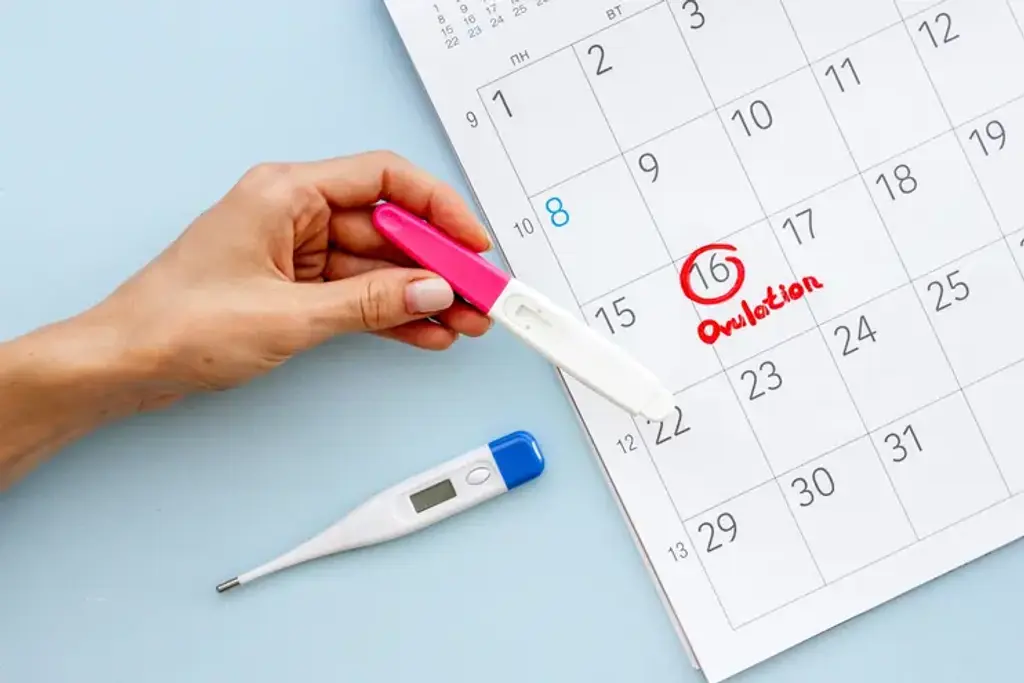
Hormonal changes start quietly. Not dramatic. Not loud. A forgotten breakfast. A longer nap. You miss clues because they don’t arrive together. A sleepless night feels like coincidence. A sugar craving feels like boredom. But something is happening, and it hides in plain sight. That’s how imbalance begins. Not with a bang, but a shrug. Days blend. Reactions dull. Nothing urgent enough to pause for.
One number might not tell you the full story
You see test results. “Normal range.” Doctor says, “All looks fine.” But you don’t feel fine. You’re slower. Hungrier. Colder. Your hair feels different. Thoughts take longer. You don’t know what’s off, but it lingers. That number doesn’t explain why your skin changed. Or why mornings feel heavier. Numbers say one thing, your body says another. That’s where tracking begins. In that confusion.
The signs might be in your mirror
You stand in front of glass and notice it. Something’s different. Not wrong. Just different. You can’t place it. But it’s there. Skin tone off. Puffiness. Eyes duller. You see yourself, but less. That moment matters. That moment is data. You’re tracking now, even if you don’t know it. You’re watching for a shift.
Tracking doesn’t always mean testing
You don’t need a kit. Or a lab. Start with a notebook. Write how your day felt. Your hunger before dinner. Your focus at noon. Your mood in the grocery line. That’s all data. Tracking is about patterns, not perfection. Miss a day? That’s fine. You’re not being graded. You’re learning your rhythm. Slowly.
You might not feel like yourself for a while
You forget birthdays. You cancel plans. You stay silent in conversations. You cry while brushing your teeth. Or don’t cry at all. You scroll more. Eat less. Or more. None of it feels like you. But you wear it anyway. Hormonal shifts blur the lines. And you’re not sure where you went. But you’re not gone.
Food changes how you feel, more than you expect
It’s not just meals. It’s timing. What you eat at 8AM feels different at 4PM. One banana keeps you full. One leaves you shaky. Some days coffee works. Others, it makes you anxious. You write that down. Not for rules. But to notice what your body says. And it says a lot.
Some shifts are slow on purpose
You start magnesium. You drop caffeine. You change bedtime by twenty minutes. Nothing feels different. Yet. But wait. A week later, mornings feel easier. The bloat eases. Your jaw unclenches. It doesn’t shout. It whispers. Slow changes last longer. The body adjusts when it’s ready. Not when you demand it.
What your body says at 8AM might not match 8PM
You’re focused in the morning. Clear. Steady. Then by evening, fog rolls in. Thoughts scatter. Emotions sharpen. Food feels heavier. That’s a hormone thing. It’s not about energy drinks. It’s rhythm. Cortisol rises, then fades. Estrogen pulses. Melatonin whispers in. Tracking this doesn’t mean fixing. Just noticing.
Sometimes stress is the hormone
Stress isn’t a feeling. It’s chemistry. Cortisol. Adrenaline. They shape your hunger. Your sleep. Your memory. You think you’re just “busy.” But your body thinks it’s under attack. It slows digestion. Speeds heart rate. Flattens libido. These are hormonal reactions. Not personality traits.
It’s not just about fertility
Hormones aren’t only about having kids. They shape your days, even if pregnancy isn’t part of your plan. They tell your body when to rest. When to move. When to eat. When to stop. You could be twenty or fifty. Period or not. Hormones speak to every part of you. Always.
You don’t have to fix everything at once
You read too much. You want to try everything. But don’t. Just one thing. Write how you feel after breakfast. One sentence a day. That’s it. You don’t need apps. You don’t need gadgets. You need your attention. And consistency. The rest comes later. With less noise.
Your body talks differently in different seasons
You eat more in winter. You sleep lighter in summer. Fall feels anxious. Spring feels swollen. These aren’t moods. They’re shifts. Hormonal. Environmental. Subtle. But real. You notice it now because you’re paying attention. The sun matters. So does darkness. So does the air.
Bloodwork doesn’t always mean answers
You get labs. They come back “normal.” But you don’t feel normal. You question yourself. Wonder if it’s in your head. It’s not. Hormones move. They dance. They swing by hour, not just by month. A single test doesn’t always catch the rhythm. Your tracking fills in what tests miss.
You know your body better than you realize
Your stomach growls when anxious. You forget words when tired. You sweat more after sugar. You feel all of this. And still, you doubt it. But it’s real. That instinct isn’t drama. It’s intelligence. From within. You’re allowed to believe your body. You always were.
Patterns aren’t obvious until they are
You don’t get it at first. Nothing adds up. But one day, it does. You see the week before your period always feels lonely. You see the afternoon crash always follows a carb-heavy lunch. These aren’t coincidences. They’re stories. Told by your body. Written by you.
Not everything is meant to be tracked forever
You won’t do this forever. You’ll stop one day. Because you’ll know. You’ll feel when something’s off. You’ll remember patterns before they repeat. And when things feel okay, you won’t need the notebook. You’ll just live. Tracking was never the goal. Understanding was.
